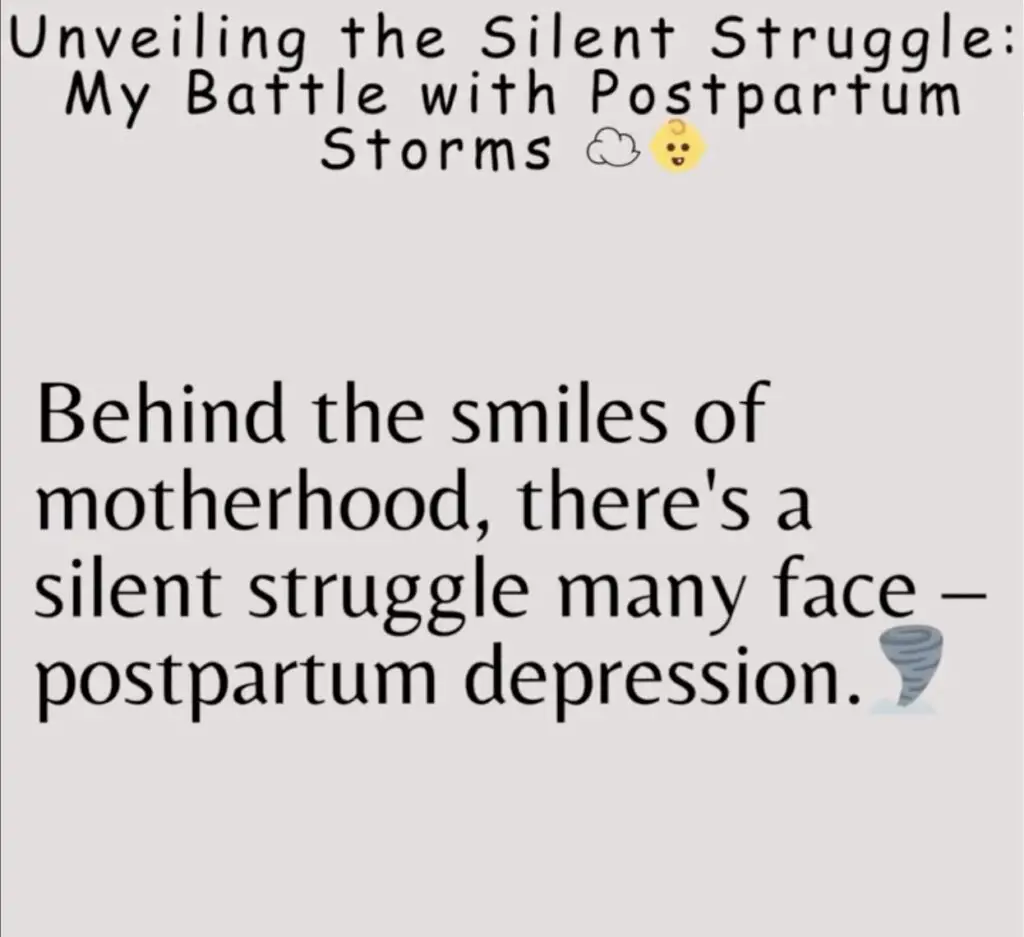Bringing a new life into the world is a joyous occasion, but for some mothers, the journey post-birth can be accompanied by unexpected emotional challenges. Postpartum depression is a silent struggle that many women face, and its impact extends beyond the individual to affect the entire family dynamic. In this blog, we’ll delve into the realm of postpartum depression, exploring its nuances, and more importantly, shedding light on how a positive mindset can be a powerful ally in overcoming this challenging phase.
Navigating Postpartum Depression (PPD): A Compassionate Guide for New Mothers
Becoming a mother is a profound and transformative experience, filled with moments of joy, wonder, and, sometimes, overwhelming challenges. For many new mothers, the journey can be shadowed by PPD, a condition that affects their ability to fully enjoy this precious time. This compassionate guide explores the signs, causes, and strategies to overcome postpartum depression, offering support and hope to those who need it. Whether you are a new mother, a family member, or a friend, understanding PPD is the first step towards healing and support. Read more about this important topic and find ways to navigate this challenging time with resilience and love.
- Understanding Postpartum Depression:
- Define and explain what postpartum depression is.
- Highlight common signs and symptoms to help mothers identify it in themselves or others.
- The Importance of Seeking Help:
- Emphasize the significance of reaching out to healthcare professionals for support.
- Break the stigma surrounding mental health and seeking assistance.
- The Role of a Positive Mindset:
- Discuss how cultivating a positive mindset can contribute to overcoming postpartum depression.
- Explore the connection between thoughts, emotions, and overall mental well-being.
- Quality Time with Your Child:
- Introduce the concept of bonding and the positive impact it can have on both the mother and the child.
- Provide practical tips for creating valuable, stress-free moments with your baby.
- Small Steps, Big Changes:
- Advocate for small, manageable steps towards recovery.
- Encourage mothers to celebrate small victories and progress on their journey.
- Example: “Seeking help is crucial, not just for postpartum depression but also for other mental health conditions that may co-occur, such as Generalized Anxiety Disorder (GAD). Understanding these conditions can provide better insight and support. For more information on GAD, click here.”
- Building a Support System:
- Stress the importance of having a reliable support system, including friends, family, and healthcare professionals.
- Share personal anecdotes or success stories to inspire hope.
- “Building a reliable support system is vital for overcoming postpartum depression. Knowledge about other mental health conditions, like Generalized Anxiety Disorder (GAD), can also be beneficial. Learn more about GAD and its impact here.”
Embracing the Journey: Overcoming Depression with Support and Positivity
Concluding the blog by summarizing the key points discussed and reiterating the message that overcoming postpartum depression is possible with the right mindset and support system. Encourage mothers to embrace the journey, seek help when needed, and savor the precious moments with their little ones.
Remember, each mother’s experience is unique, and by sharing insights and promoting a positive approach, we can contribute to breaking the silence surrounding postpartum depression.
Do Follow for More Tips and Inspiration:
- Instagram: Follow us on Instagram
- Pinterest: Follow our Pinterest profile
FAQs
- What is postpartum depression (PPD)? Postpartum depression is a type of depression that can occur after childbirth, characterized by feelings of extreme sadness, anxiety, and exhaustion that may interfere with a mother’s ability to care for herself or her baby.
- How can I tell if I have postpartum depression? Common signs include persistent sadness, loss of interest in activities you once enjoyed, difficulty bonding with your baby, feelings of worthlessness or guilt, changes in appetite, sleep disturbances, and overwhelming fatigue.
- What causes postpartum depression? PPD can be triggered by a combination of factors including hormonal changes, physical exhaustion from childbirth, and emotional stressors such as changes in identity and responsibilities.
- Is it normal to feel sad after giving birth? It’s common to experience “baby blues” for a few weeks after delivery, characterized by mood swings, anxiety, and mild depression. If these feelings persist beyond two weeks or intensify, it may be PPD.
- How can a positive mindset help in overcoming postpartum depression? Cultivating a positive mindset involves focusing on small victories, practicing self-compassion, and engaging in activities that promote mental well-being. It helps in shifting your perspective and can be a powerful tool in the recovery process.
- What are some effective treatments for postpartum depression? Effective treatments include therapy (such as cognitive-behavioral therapy), medication, support groups, and self-care strategies like exercise, nutrition, and adequate rest.
- When should I seek professional help for postpartum depression? Seek help if your symptoms last more than two weeks, become increasingly severe, or interfere with your ability to care for yourself or your baby. If you have thoughts of harming yourself or your baby, seek immediate help.
- How can I support a loved one with postpartum depression? Offer emotional support, assist with daily tasks, encourage them to seek professional help, and listen without judgment. Your understanding and presence can make a significant difference.
- Can postpartum depression affect fathers or partners? Yes, partners can also experience postpartum depression, often due to the stress and changes associated with the new responsibilities of parenthood.
- Where can I find more resources and support for postpartum depression? You can find additional resources and support from healthcare providers, mental health professionals, local support groups, and online communities dedicated to postpartum mental health.
